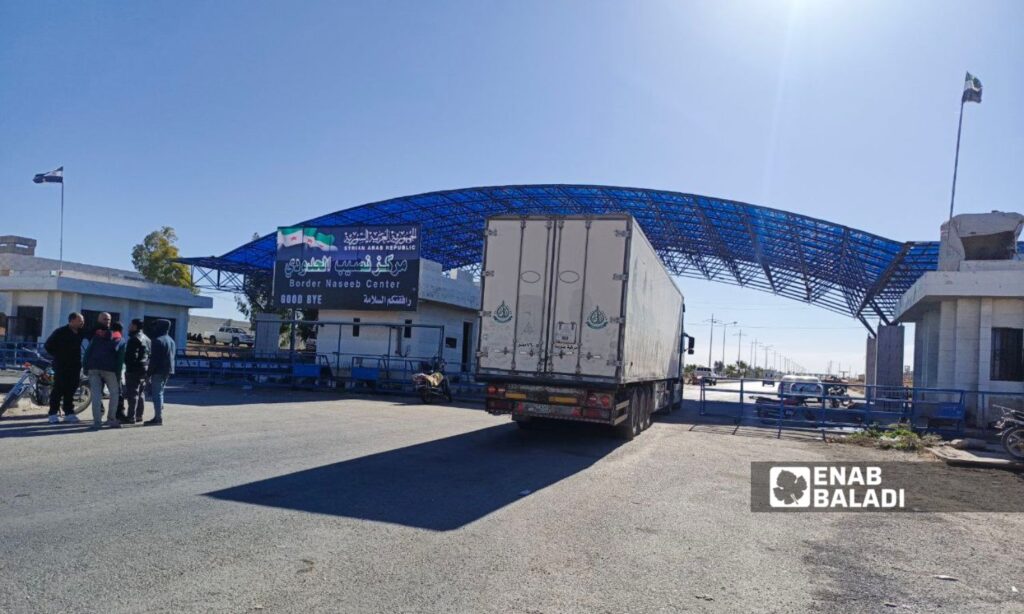Jordan’s Secretary-General of the Ministry of Industry, Trade, and Supply, Dana al-Zoubi, stated that Jordan has sent about 2,500 trucks to Syria since December 16, 2024.
Al-Zoubi added that Jordanian exports to Syria amount to an average of 200 trucks daily, noting that 50% of Jordanian exports to Syria since the fall of the Assad regime have been construction materials (cement), according to what the Jordanian Al-Mamlaka channel reported on Sunday, January 12.
She explained that the commercial relationship between the two countries is governed by a free trade zone agreement signed in 2001, which came into effect in 2002.
Under the agreement, the exchanged products between the two countries are exempt from customs duties.
She pointed out that trade between Jordan and Syria used to exceed $500 million before 2011, but it has significantly declined, recording only $100 million in 2016, of which $70 million were Jordanian exports, and the decline continued until 2023.
Regarding the agricultural sector, the Secretary-General of the Jordanian Ministry of Agriculture, Mohammad al-Hayari, stated that Jordan exported more than 2,600 tons of vegetables and fruits to Syria during the past 40 days, which represents a sevenfold increase compared to the previous year.
He confirmed that these exports will positively reflect on Jordanian farmers and Syrian consumers, noting expectations that the volume of agricultural exports to Syria and through it will reach 50-60 thousand tons soon.
Al-Hayari explained that Jordanian agricultural exports to Syria and through it exceeded 200 thousand tons annually in 2012 but dropped to 160 tons in 2022 before gradually rising again in 2023.
He indicated that during the period from 2016 to 2021, there were no agricultural exports due to the closure of border crossings.
On another note, the Jordanian Customs Department announced the adoption of three additional customs centers to organize the data of trucks heading to Syria, namely the customs center of al-Hassan Industrial City, the customs center of Mafraq, and the customs center of Amman, in addition to the Jaber-Nassib border center as the exit customs center.
This measure aims to reduce congestion at the Jaber-Nassib border and facilitate shipping movements to Syria.
The interim Damascus government announced the unification of all customs tariffs on January 11.
The Director of Relations at the General Authority for Land and Marine Crossings in Syria, Mazen Alloush, stated that a circular on unified customs tariffs was issued, which applies to all customs goods at land and sea crossings and airports.
Customs tariffs previously restricted import and export operations during the regime of the ousted president Bashar al-Assad, prompting many traders to rely on smuggling goods.
Syrian traders have previously complained about the restrictions imposed on imports, high customs tariffs and taxes that negatively affected competition in foreign markets, in addition to delays in processing transactions and customs arbitration processes, warning that smuggling will continue as long as import restrictions remain in place.











